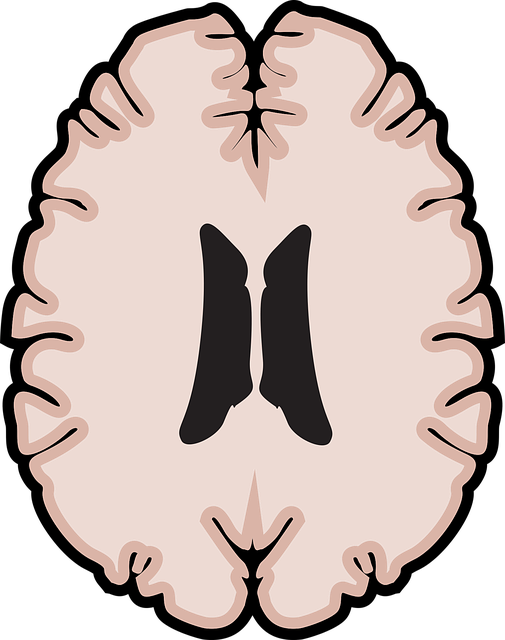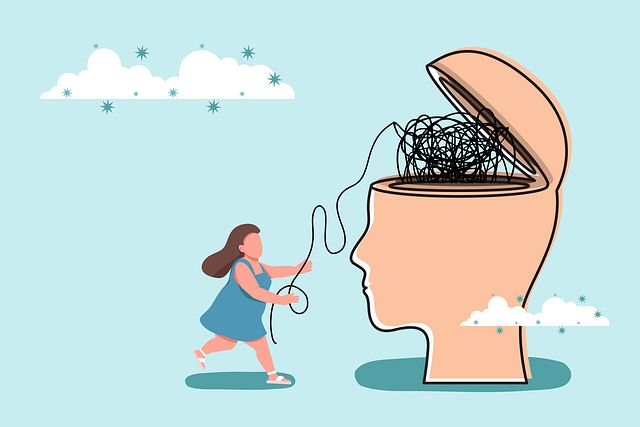Early recognition of depression is crucial for deaf and hard-of-hearing individuals, and Denver American Sign Language (ASL) Therapy offers a unique solution. This community emphasizes the power of ASL in identifying mental health issues through subtle changes in signing patterns or gestures. Mental health professionals are integrating ASL into their practices to ensure tailored care, addressing communication barriers and cultural accessibility. By combining risk assessment, management planning, and ASL, Denver ASL Therapy provides life-changing support, improving patient engagement, reducing misunderstandings, and fostering trust. This approach not only benefits individual patients but also contributes to the development of inclusive mental wellness coaching programs, ultimately enhancing patient outcomes and reducing anxiety or depression related to miscommunication or marginalization.
Depression prevention is a crucial aspect of maintaining mental well-being, and early detection plays a vital role. This article explores innovative strategies to combat this common yet devastating condition, with a unique focus on the benefits of Denver American Sign Language (ASL) therapy. By recognizing signs through ASL, individuals can access preventive measures tailored to their needs. We delve into how ASL therapy fosters resilience and long-term mental health, offering a promising approach for those at risk.
- Recognizing Depression and Its Signs: Early Detection through ASL
- The Role of Denver American Sign Language Therapy in Prevention
- Building Resilience: Strategies for Long-Term Mental Well-being
Recognizing Depression and Its Signs: Early Detection through ASL

Recognizing depression early is crucial for effective prevention and treatment. While many people are aware of common symptoms like persistent sadness or loss of interest, there’s a growing understanding of the importance of non-verbal cues. The Denver American Sign Language (ASL) Therapy community emphasizes the value of ASL in detecting mental health issues, especially among individuals who find traditional communication methods challenging. Early detection through ASL can be life-changing for deaf and hard-of-hearing individuals, enabling timely intervention and support.
Mental health professionals are increasingly incorporating risk assessment and management planning into their practices. This includes recognizing subtle signs of depression, such as changes in communication patterns, which may manifest as reduced signing or specific gestures associated with emotional distress. By integrating ASL into their skill set, therapists can improve their ability to assess and manage mental health risks, ensuring comprehensive care tailored to diverse populations. Effective stress management is also a key component of this approach, considering the impact of chronic stress on overall well-being.
The Role of Denver American Sign Language Therapy in Prevention

Denver American Sign Language (ASL) Therapy offers a unique and innovative approach to mental health prevention, particularly focusing on communication barriers and cultural accessibility. ASL therapy can play a significant role in burnout prevention strategies for healthcare providers by bridging the gap between medical professionals and Deaf or hard-of-hearing individuals. By incorporating ASL into therapeutic settings, healthcare providers can improve patient engagement and satisfaction, ensuring better access to care. This approach not only benefits individual patients but also contributes to the broader goal of enhancing mental wellness coaching programs development.
The use of ASL therapy supports self-care routine development for better mental health by promoting effective communication, reducing misunderstandings, and fostering a sense of comfort and trust. In today’s diverse healthcare landscape, where cultural sensitivity is paramount, Denver ASL Therapy serves as a powerful tool to create inclusive environments. This can lead to improved patient outcomes and reduced instances of anxiety or depression that may arise from miscommunication or feeling marginalized. By integrating ASL therapy into healthcare practices, professionals can cater to a wider range of patients, ultimately contributing to a more comprehensive strategy for mental wellness promotion.
Building Resilience: Strategies for Long-Term Mental Well-being

Building resilience is a key component in depression prevention and fostering long-term mental well-being. Denver American Sign Language Therapy offers valuable tools for individuals to navigate emotional challenges and develop inner strength. Through sign language therapy, individuals can enhance their communication skills, express emotions more effectively, and build confidence in managing stress. This process not only improves emotional healing but also empowers individuals to better understand and regulate their mental health.
Mindfulness Meditation is another powerful strategy integrated into Denver ASL Therapy. Regular practice of meditation helps individuals cultivate present-moment awareness, reducing the impact of negative thoughts and emotions. By focusing on breath and bodily sensations, one can develop a deeper connection with their inner self, fostering resilience against depression. Additionally, Inner Strength Development techniques taught in therapy encourage individuals to embrace challenges as opportunities for growth, promoting a positive mindset that builds mental fortitude over time.
In conclusion, recognizing depression early through methods like ASL (American Sign Language) therapy, as highlighted by Denver American Sign Language Therapy, is a powerful tool in prevention. Building resilience with long-term mental wellness strategies further equips individuals to navigate and overcome challenging periods. By combining these approaches, we can foster a more proactive and supportive environment for overall mental health.














